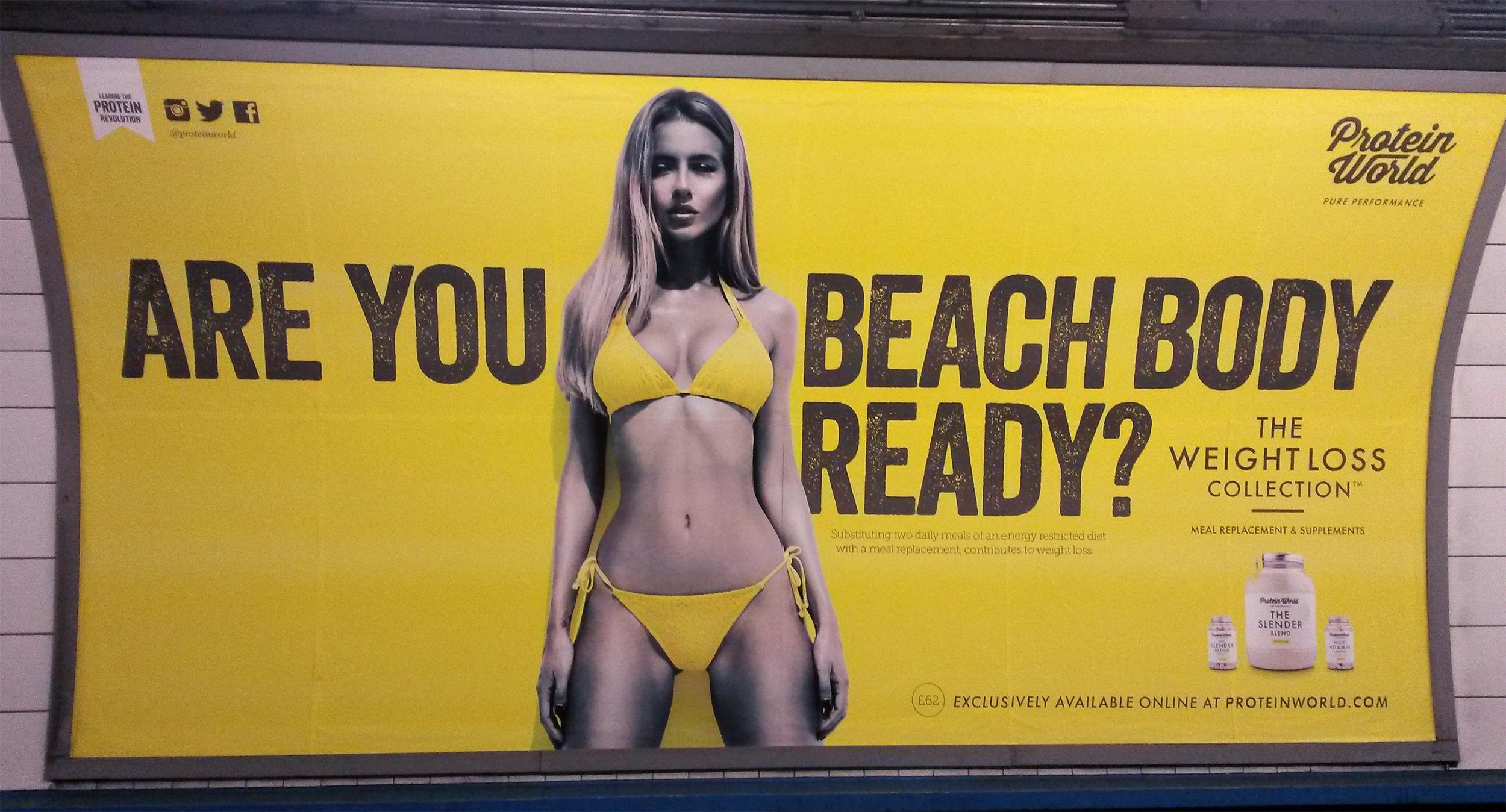Sadiq Khan is right to ban objectifying ads from the tube - we never consented to this sexist wallpaper
Like a devastatingly high number of women, I suffered from an eating disorder in my teenage years. And, like many women who have grown up and are now in a position to fight against these sorts of pressures, I know that this type of advertising is potentially catastrophic

He’s only been in office since May, but London Mayor Sadiq Khan has already taken an important step affecting the everyday lives of Londoners.
Khan has proposed a ban for the London Underground that prevents the display of adverts promoting unrealistic expectations of women’s body image and health.
There’s certainly a demand in London for a ban on body-shaming advertising. Last year, there was a phenomenal backlash against Protein World’s now infamous “Are you beach body ready?” poster, which sparked a protest in Hyde Park and a petition on Change.org that received more than 70,000 signatures. That's no small reaction.
What's so bad about a few posters? you might ask. The answer is: they're psychologically insidious and, crucially, they take away the element of choice. There is no trigger warning for a young person going down the escalator on her way back from an appointment at an eating disorder clinic, or on her way back from school where a classmate called her fat, to then be greeted with a tanned, impossibly toned woman's body alongside messaging demanding whether or not she's ready to be seen and judged on a beach. There's no choice involved when plastic surgery clincs' offerings bombard you on your way to work, or when "I used to be fat and sad, but look at me now!" illustrated posters for the latest commercial diet plan add to your stress after a particularly gruelling day. It's not the same as opening a beauty magazine or googling for diet tips. Unless you can afford your own personal chauffeur, you're seeing - and unconsciously processing - those images, every day, whether you like it or not.
Young people face a perfect storm of pressures. There’s persistent testing in schools to contend with; the rapidly changing landscape of a future blighted with terrorism and climate change; the crippling effects of austerity and housing shortages - the list goes on. Khan is right to be conscientious about anything that could make getting through the day more challenging for youth. They have enough on their plate as it is.
A survey last month found that 78 per cent of doctors were seeing more young patients with mental health problems than five years ago, and 87 per cent expected pressure on services to increase even more.
Yes, we can put pressure on the government to increase funding for mental health services, many of which are unravelling under an uncompassionate Tory government. But it’s important to look at harmful triggers that people are exposed to as well.
Like a devastatingly high number of women, I suffered from an eating disorder in my teenage years. And, like many women who have grown up and are now in a position to fight against these sorts of pressures, I know that this type of advertising is potentially catastrophic. They may not cause every eating disorder, but they are at best exacerbating factors.
With the mental health crisis among young people growing every day, removing a few “beach body” posters is the least we can do.
Khan’s ban might sound like a small change, but if it prevents even one young person from feeling bad about her body, if it keeps one young girl from developing anorexia, if it strengthens the confidence of even one student, then surely he's done his job.
Join our commenting forum
Join thought-provoking conversations, follow other Independent readers and see their replies
Comments
Bookmark popover
Removed from bookmarks